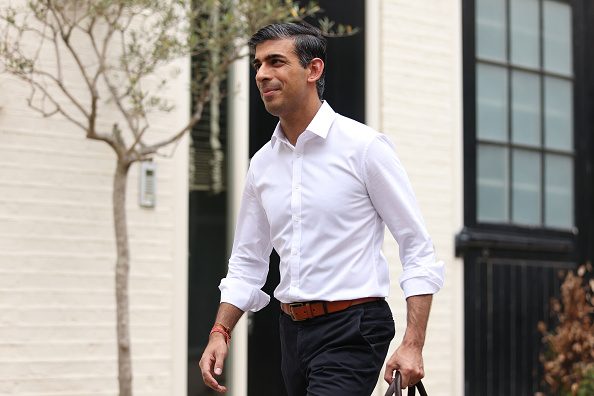
IN A RECENT and notable cabinet reshuffle orchestrated by Prime Minister Rishi Sunak, former minister of Housing, Communities and Local Government and part-time TV presenter for GB News, Esther McVey has been appointed as the new cabinet minister.

McVey has been handed the unofficial title of “minister for common sense” after the PM’s made reshuffle on Monday (13) prompted by his sacking of Suella Braverman.
As the so called “common sense tsar,” the GB News presenter—who was among the first to be removed from the Conservative leadership campaign in 2019—is said to have been assigned to spearhead the government’s anti-woke mission, unofficially.
Esther McVey has admitted she was as “shocked as anyone” when she got the call from Downing Street to become a minister in Rishi Sunak’s government.
She said: “I wasn’t expecting it at all, I was pleasantly surprised.”
Some media are describing Esther McVey’s appointment as tantamount to creating an anti-woke tsar in Whitehall.
Woke is often described as excessive political correctness and can also sometimes state opposition to schemes designed to tackle Diversity and Equality.
Many right wing newspapers and some MPs on the right of the Conservative Party identify themselves as being anti-woke.
Some are not pleased with her appointment as the new cabinet minister and there has been criticism and ridicule in parts of UK social media.
Caroline Lucas, Green MP for Brighton Pavilion, former leader & co-leader at The Green Party posted on X, formerly Twitter posted: “If Esther McVey is the “Minister for Common Sense”, does that mean no other Minister in this Cabinet has any common sense? Sounds about right to me then. Wonder what’s next – Minister for the Bloody Obvious?”
Other reactions:



Her role, according to newly appointed party chairman Richard Holden, is to “represent a part of that broad panoply of opinion that the Conservative Party represent”.
However, Holden was reluctant to describe McVey as a common sense minister who will wage war on wokeism.
When asked if McVey would be vetting “woke” policies, he replied: “I think all of us will be looking at all policy in the round”.
Holden replied: “I know Esther, I know her husband Philip [Davies] very well – they have various different views on a wide range of different topics just like other MPs do as well. And I think to try and put people into little pockets of one thing or another, I don’t think is fair.”
Previously McVey was a minister at the Ministry of Housing, Communities and Local Government from July 2019 to February 2020, and she was Secretary of State for Work and Pensions from January to November 2018. She was elected MP for Tatton in 2017 and was previously MP for Wirral West from 2010 to 2015.
She was the first MP to employ an apprentice and introduced the scheme to the House of Commons.
At the same time, Downing Street said that it is not focused on “tick-box diversity”, following the reshuffle that resulted in the four principal offices of state being controlled by privately educated men for the first time since the Tories’ 2010 election victory.
No. 10, which defended the changes in response to criticism over the underrepresentation of women in the highest posts in government, stated that the goal of the Cabinet reshuffle is to create a “strong and united team.”
Prime Minister Rishi Sunak’s press secretary said: “The Deputy Prime Minister (Oliver Dowden) went to a state school.
“This is about having a strong and united team that’s focused on delivering for the public and bringing in some of that experience, with David Cameron on the foreign policy brief to deliver the best for the country.
“That’s what we’re focused on rather than tick-box diversity.”
Only eight women have ever served in one of the roles – Margaret Thatcher as prime minister, Margaret Beckett as foreign secretary, Jacqui Smith as home secretary, Theresa May as both home secretary and PM, Amber Rudd as home secretary followed by Priti Patel and Suella Braverman and Liz Truss as foreign secretary and PM.
Reshuffles in the British government typically occur over a few hours, and the rate of appointments might occasionally stop or pick up speed when MPs accept or reject new jobs. The formal announcements made on Monday thus far are listed below.